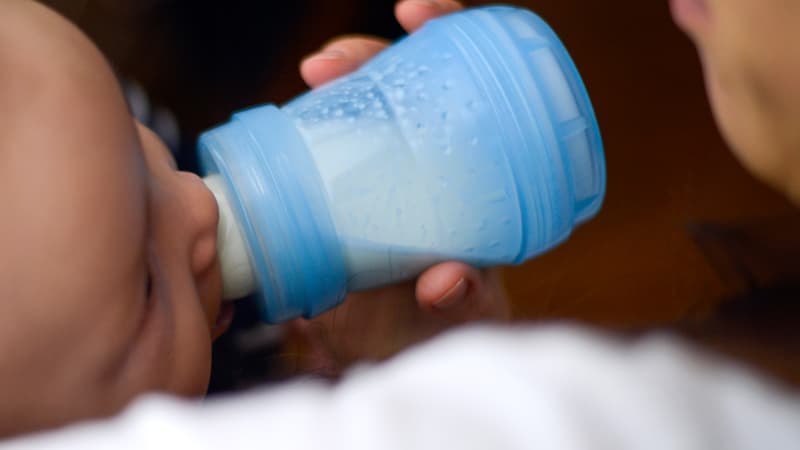The vast majority of health claims for infant formulas have “little or no scientific evidence,” according to a study published Wednesday in the journal british medical journalwhose authors advocate neutral packaging for these products.
The publication of this study comes a week after a series of articles appeared in the scientific journal the lancet calling for stricter regulations imposed on manufacturers of infant formula. Manufacturers are accused of “predatory” marketing that takes advantage of new parents’ fears to convince them not to breastfeed.
The health authorities – including the World Health Organization – recommend giving priority to breastfeeding, due to its benefits for the health of babies. The WHO also regrets that “inadequate marketing of breast-milk substitutes continues to undermine efforts to improve rates and duration of breastfeeding worldwide.”
“Inappropriate” Marketing
Daniel Munblit, Honorary Professor at Imperial College London and co-author of the study published in bmjdefends itself against any “crusade” by researchers against formula, which should remain an option for mothers who cannot or do not want to breastfeed.
“But we strongly oppose the inappropriate marketing of infant formulas when it offers misleading claims that are not supported by solid evidence,” Munblit told AFP.
The scientist and an international team of researchers analyzed the health claims of 608 products on the websites of infant formula manufacturers in fifteen countries, including the United States, India, the United Kingdom and Nigeria. France is not one of them.
Few scientific references.
Sales pitches claim benefits for baby’s brain development, immune system strengthening, and growth. But half of the selected products did not link the purported health benefit to a specific ingredient, according to the study published Thursday. And three quarters of these products do not mention any scientific reference that proves these supposed benefits.
Only 14% of products have undergone registered human clinical trials. However, 90% of these trials were at high risk of bias, such as missing data or findings that did not really support the point of sale, according to the study.
And above all, in 90% of clinical trials, the authors received funding or had ties to industry, he added.
Source: BFM TV


